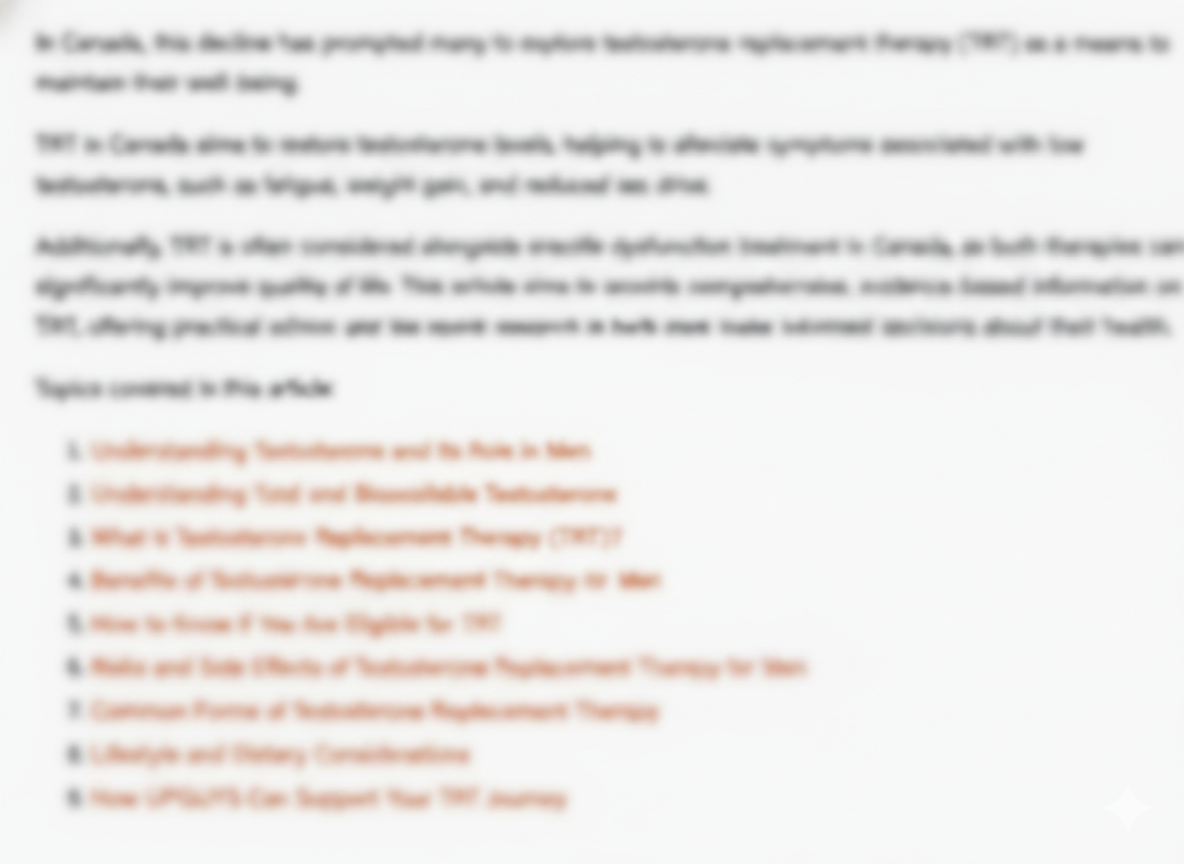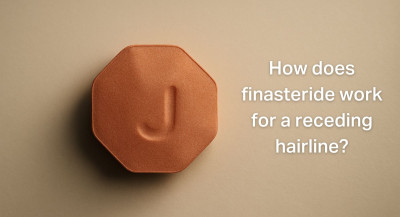Research shows more
than 80% of men
and almost half of women experience significant hair loss during their
lifetime. A typical scalp carries between 100,000 to 150,000 hairs, with
50 to 100 of them falling out daily once they complete their growth
cycle. Experts reveal alopecia or hair loss typically occurs when
shedding outpaces growth.
If you are experiencing hair loss, you've probably heard of or even ordered Finasteride
as a hair regrowth solution. This article looks at all you need to know
about Finasteride.
Easy and Discreet
Order Oral And Topical Finasteride Online
Order Now
Table of contents:
What is Finasteride?
Finasteride is a popular medication used to treat male pattern hair
loss. The product is available in tablet form only, meaning it should be
taken orally. The drug blocks the body's male hormone production in the
scalp, which stops hair growth. Finasteride is also used to treat men
with benign prostatic hyperplasia (BPH) caused by an enlarged prostate.
It is essential to note the effect of Finasteride on the prostate and
scalp can only last as long as the medication is taken. If you stop
taking the medication, you may experience continued hair loss, or your
prostate will begin to grow once again. Check finasteride before and after
usage to learn more.
How does it work for hair loss? Is it effective?
Finasteride works by
blocking the action of an enzyme referred to as 5-alpha-reductase. Ideally,
the enzyme changes testosterone to another hormone that causes hair loss
or the prostrate to grow in males. The drug increases testosterone levels in the body, decreases the prostate size, and reduces hair growth
on the scalp. Oral Finasteride effectively promotes scalp hair growth
while preventing further hair loss in most males. Over time most
patients find that apart from halting hair loss, Finasteride can also
help regrow hair that has recently been lost.
It is recommended that your physician check your progress at regular
visits to determine whether the medicine is working correctly and if you
need to continue taking it regularly. Blood and urine tests may be
carried out to determine the presence of unwanted effects.
It is essential to note the effect of Finasteride on the prostate and
scalp can only last as long as the medication is taken.
What dosage is Finasteride available in?
Finasteride is only available in tablet form. The dose of finasteride
differs from one patient to another, from 1mg to 5mg. Ideally, the amount of medicine you take is determined by several
factors, including the time allowed between doses, the length of time
you take medicine, and the specific medical problem for which you are
using the drug. The following is the average doses of the
medication:
For benign prostatic hyperplasia
-
Adults: 5 milligrams (mg) once a day.
-
Children: Use is not recommended.
For male pattern hair loss
-
Adults:
1 milligram (mg) once a day.
-
Children:
Use is not recommended.
It is essential to take the drug at around the same time every
day. Do not stop taking Finasteride without talking to your
doctor.
Missed dose
If you miss a dose of the drug, skip the missed dose and go back to
your regular dosing schedule. Don't double the doses.
Side effects
Apart from its desired effects, Finasteride can cause unwanted side effects. These effects may not occur in each patient. However, you may need
medical attention should you experience any of the following side
effects:
-
Chills
-
confusion
-
Cold sweats
-
Dizziness, faintness, or lightheadedness, especially when you are
getting up suddenly from sitting or lying
-
Bloating
-
Breast tenderness or enlargement
-
Rapid weight gain
-
Tingling of hands or feet
Read more: Finasteride vs Dutasteride
Easy and Discreet
Order Oral And Topical Finasteride Online
Order Now
How to store Finasteride?
Finasteride should be stored safely in a closed container at room
temperature. Keep the medicine at room temperatures, away from moisture,
heat, and direct light. Do not freeze the drug. You should also keep the
medicine out of reach of the children and avoid keeping outdated
medicine. Seek advice from a healthcare professional on how to dispose
of any drug you no longer use safely.
How to get better results from Finasteride
There are several things that you can do to get the best results from Finasteride. These include:
Take as recommended: Finasteride is used for long-term treatment. It is vital that you
take the drug as prescribed to increase its efficacy and avoid severe
risks. If you fail to take medicine as directed, you may not see an
improvement in hair loss and hair regrowth. Similarly, if you take too
much, you are at a higher risk for developing adverse reactions,
including reduced sex drive, problems getting or keeping an erection,
rashes, and more.
Incorporate a hair loss prevention shampoo into your treatment: Consider using shampoos formulated with saw palmetto or ketoconazole,
designed to lower DHT levels and prevent male pattern baldness. Experts
also reveal that you should not be washing your hair every day, but only
when it gets oily. This is because most shampoos carry harsh chemicals
such as sulphates, which strip away sebum, the crucial oil for strong
and healthy hair.
Eat a well-balanced, healthy diet: A balanced diet ensures your body gets adequate vitamins, minerals, and
other nutrients essential in the promotion of healthy hair growth. You
should also eat sufficient zinc and iron, as these minerals are
important for having strong, healthy hair. Some of the foods rich in
zinc include oysters, crab, pork chop, baked beans, chicken peas,
oatmeal, kidney beans, chicken breast, and more.
Change lifestyle: Consider making some hair-friendly changes to your lifestyle, such as
avoiding irritating hair products and reducing stress levels. You should
also stop smoking cigarettes. Researchers have long established a
strong link
between smoking and hair loss. Cigarettes actually cause damage to the DNA of your hair follicles,
and smoking on a daily basis could be detrimental to the health of your
hair.
Take biotin supplements: Biotin
is a water-soluble vitamin that plays a crucial role in the development
of hair and nails. Biotin supplementation for hair growth is recommended
when a biotinidase deficiency is at play for hair loss.
Are there any alternatives to Finasteride?
The following are some of the common options to Finasteride:
Hair transplant: Hair transplant is a surgery that involves the extraction of
follicles from areas where hair still exists and is implanted in areas
with significant loss. In a nutshell, the surgeon takes hair from one
area to transplant it to another. Although it is an effective treatment
with permanent results, finasteride's costs
can be prohibitively high.
Minoxidil:
Minoxidil
was initially intended to lower blood vessel tension. It has long been
established the drug helps hair regrowth. The medication shortens the
telogen phase while increasing follicles in the anagen (hair growth)
phase.
Low-level laser therapy: LLLT is a non-invasive hair loss treatment solution based on
medical-grade laser light. A red light is passed through the skin
surface, stimulating capillary blood circulation and activating the
cellular function of the follicle. The LLLT typically slows down and
minimizes the progression of hair loss while promoting new hair
growth.
Saw palmetto: Saw palmetto is an oil that works simirlaly as fisteride. The oil
which is obtained from Serenoa repens plant doesn't have any side
effects common with other medications. Saw palmetto works by blocking
the enzyme alphas five reductases that raises DHT blood levels and
causes hair loss. It can be used in many forms, either as a food
supplement, tea, or herbal medication. The oil can also be applied
topically to the scalp.
Read more: Can You Buy Finasteride Over The Counter?
How safe is Finasteride?
Finasteride is typically safe to take for a long time. Most people take
the medication for months or even years without any problems. However,
if you have other underlying conditions, it is safe to consult your
doctor before taking the drug.
Easy and Discreet
Order Oral And Topical Finasteride Online
Order Now
Final Thoughts
Finasteride is currently one of the most effective medications
available to treat hair loss. The medicine
helps men stop hair loss, keep the hair they still have and even grow
back "lost" hair. Although Finasteride has a proven track record, it is
not entirely free of side effects and may not work in all patients the
same way. Before using any hair loss medication, such as finasteride or minoxidil, consult first with your trusted
medical provider.
FAQs about Finasteride for hair loss
1. Who should not use Finasteride?
Before using the medicine, the risks of taking the drug
must be weighed against the good it will do. The following
categories of people should not take Finasteride:
Allergies: before taking this drug, tell your doctor whether you
have ever experienced any unusual or allergic reaction to
the medicine or any other medicine. You should also inform
the doctor about your other allergies, such as food, dyes,
preservatives, or animals.
Pediatric: Finasteride should not be used in the pediatric
population. To date, safety and efficacy are yet to be
established for these population groups.
Women:
Children and women should not use this drug. Expectant women
or those planning to get pregnant should not also handle
crushed or broken tablets. Finasteride can be absorbed
through the skin to cause congenital disabilities in male
babies. If you come in contact with the medicine, wash the
affected area immediately with soap and water.
Breastfeeding:
Although there are currently no adequate studies on women to
determine infant risk when using the medication during
breastfeeding, weigh potential benefits against the
potential risk of taking the drug.
Drug interactions: some medicines should not be used together with
Finasteride. If you are taking Finasteride, it is vital to
inform your doctor before other medications to prevent any interactions.
2. How long does it take for Finasteride to work for hair
loss?
Like other hair loss treatments, results from Finasteride
are not instant. If you are starting to lose your hair, you
should expect to see some results in three to four months
once you begin using Finasteride. More significant results
are usually recorded after approximately one year.
3. Are there some foods or drinks I need to avoid when taking
Finasteride?
You can eat and drink your normal foods or drinks when taking
Finasteride. You can drink alcohol with Finasteride.








